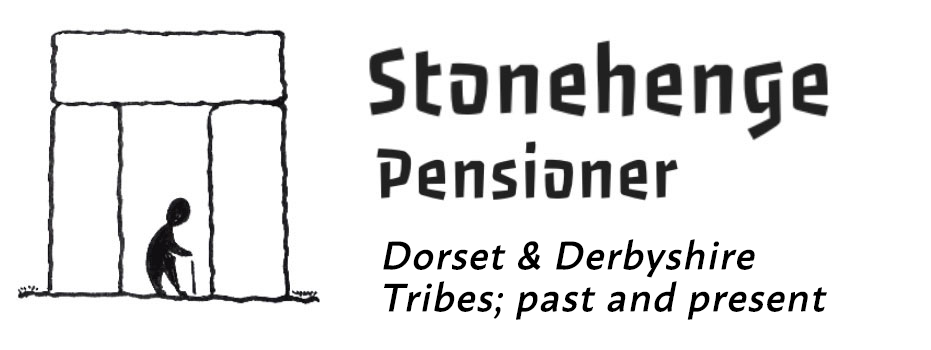Ageism Will Become An Issue For Older People
As we grow old, and survive, it appears that pensioners are to dominate society. That word dominate is a little misplaced because it sounds as if we are proactive. That we are somehow in control, forging our way forward. It might be nearer the truth to suggest that we dominate by sleepwalking through later life whilst also demanding resources. Consequently, we might take a bigger share than we deserve, or society can afford. If this happens, ageism will become an issue for older people and society can only resent us. As a pensioner I have posted many times including on how we interact with the young, mental health and general health.
Millennial Issues
The views of the young about the old have been researched and it highlighted three issues. The first and readily anticipated one is that because the old have had their turn, they should stand back and make way for the young. The problem with this is that we might have had our turn but not our term; we are still here. Worse, when the millennial’s reach our age we can anticipate that they will mimic our behaviour.
The Second Millennial Issue
The second millennial issue is a valid complaint; that the country’s limited resources should be spent on the young. I have spent the last few decades convinced that too much is spent on the old. Why should I be given a free bus pass but not the young? As for the NHS, now I am older and in possession of a chronic illness, have I changed my mind? The answer is no! For instance, having to wait for my NHS appointments is simply a way of managing resources. My experience of the NHS is generally good although I am aware that misdiagnosis and confusion has occurred. My death is inevitable and there should be a limit to how much is spent on me. The trouble is, am I right? If I accept treatment come what may then it suggests that ageism will become an issue for older people?
The Third Millennial Issue
The third issue was about identity; that older people should act their age. Quite what this meant was uncertain. Perhaps the threat is that if we continue working well into old age then we potentially take away jobs from the young. This ignores the fact that the sort of jobs older people do are rarely attractive to the young, mainly because of the age difference. We fill in our time by driving, gardening and the sort of jobs we did when young. We rarely do the online work, finance or the manufacturing that has developed in the past 30 years. Acting our age also implies sitting back and doing little, which would make us less well and more dependent on society. We must keep moving and keep fit. The ‘joy of movement’ is something I cover in my book about Zuri.
The Research
The research into ageism in 2013 was quite revealing. It appears that 84 ‘groups’ were identified as being related to older people. You might assume that all of them are supportive of the old. Not so; 75% of these groups were created by younger people and 40% of these adversely criticised the old. They demanded restrictions upon driving and even shopping. That old woman fumbling in her purse at the check-out really does upset the young in the queue.
The WHO
Ah! For certain you gave your age away if you thought this is about a raucous pop group. The real WHO, the World Health Organisation, in 2016, demanded that ageism be eliminated in the world. Rather easier said than done. The main issue they highlighted is that nursing and medicine are essentially ageist. They identify age in financial terms because so many of the aged who walk through the door have multiple illnesses. A list of appointments, tests and scans is essentially an invoice; the NHS pay for this. The WHO wants to reverse this negativity by increasing confidence in the old. How to do this is unspecified but suggests the old must stay in a positive mental state about life. Otherwise, the constant negativity leads to anti depressants and increasing illness.
The Positive View
There is some positive action out there because my research online discovered the Centre for Ageing Better. In particular, they were addressing digital exclusion, the inability of older people to use the internet. Furthermore, one of their panelists was Grandma Williams, an 80 year old blogger. So not all of us are excluded. For certain, the complexity of the digital world seems to be the reason why so many of the old ignore it.
Longevity & Ageism
The media constantly feature good news stories about how we are all living longer because of modern medicine. Few appear to recognise that living longer carries it’s own risks, not least that of morbidity. This is the state whereby we survive only because of medication and resources. Vast sums are spent keeping people alive over their last few months. Worse, as we live longer then the period of morbidity is also increasing; we are sick for an extended period before we die. The media frequently highlights the extended waiting lists, queuing ambulances and the selling of homes to pay for care home fees. None of this was news when I was young and when the state of morbidity was relatively unknown.
Ageism Will Become An Issue for Older People
The word resentment needs to be our focus; bitter indignation at having been treated unfairly. I think that most people understand that resources are limited, and must apply to the old. If the young cannot succeed then there will be fewer resources in old age. The sick young, with a life in front of them, must also be given priority treatment. The politicians have to bite the bullet over resources. The old must experience limits. The state of morbidity should have a benchmark as regards medical input. Once reached, the person should be allowed to die with dignity. That means a reduction in longevity. Ageism will become an issue for older people if we just keep piling unlimited resources into medical and care services.




